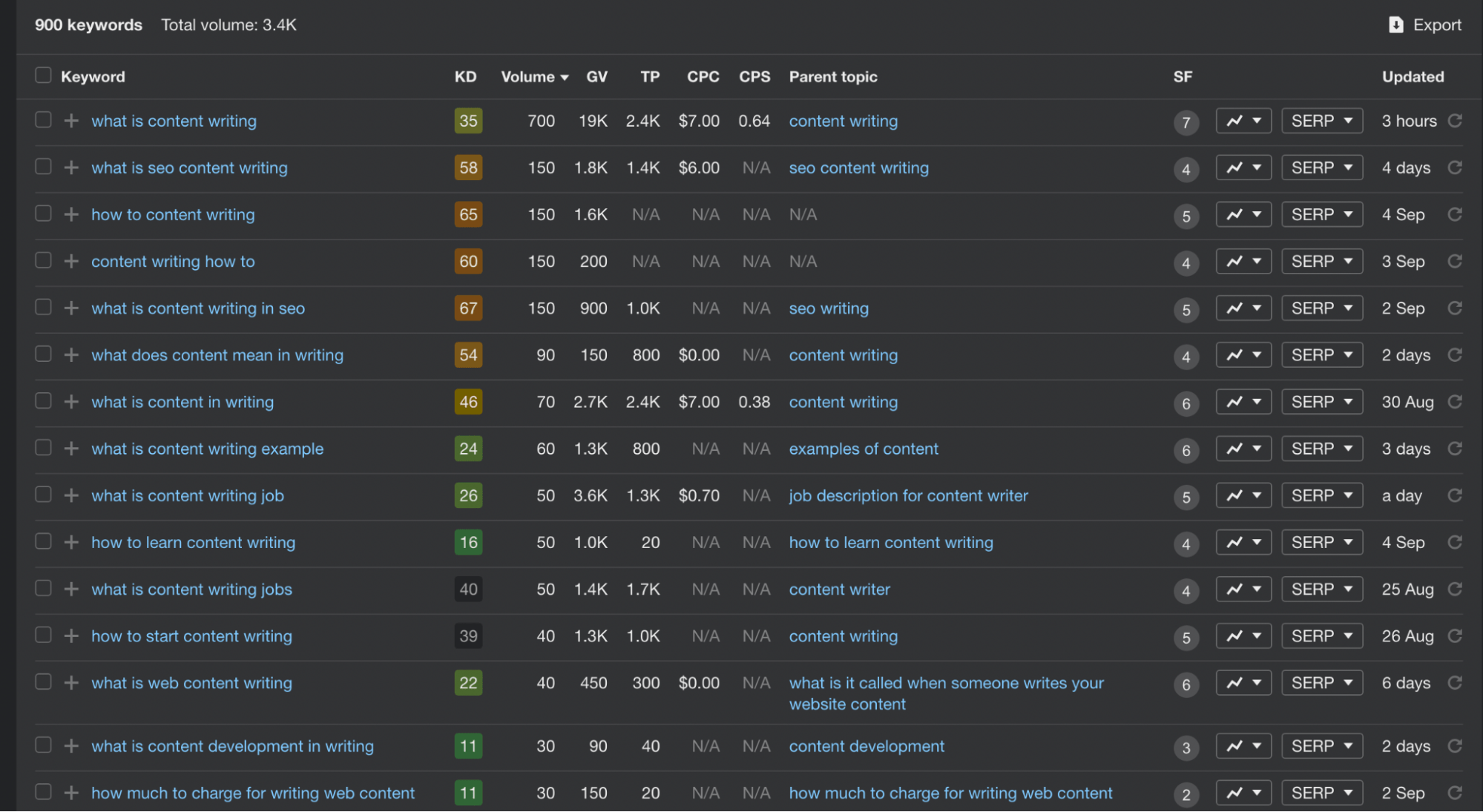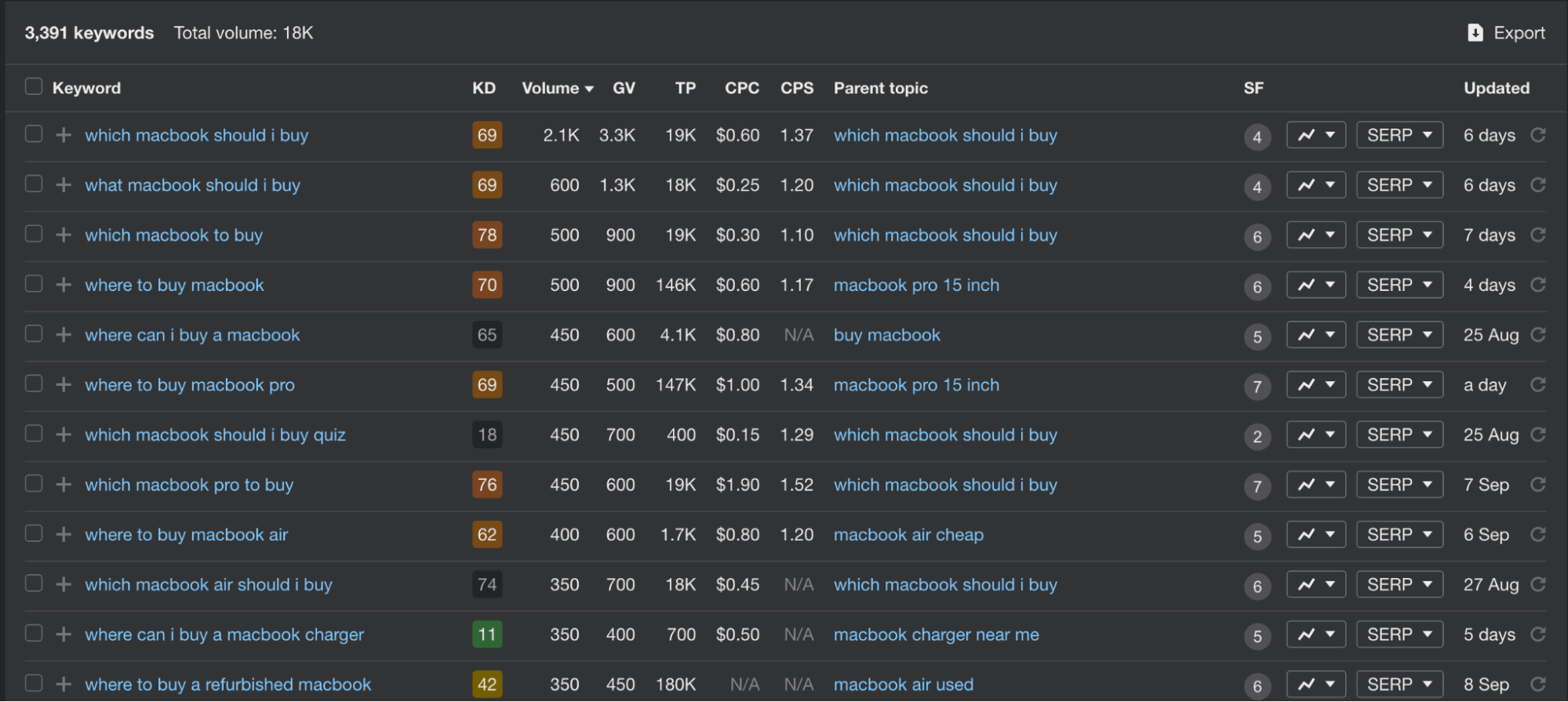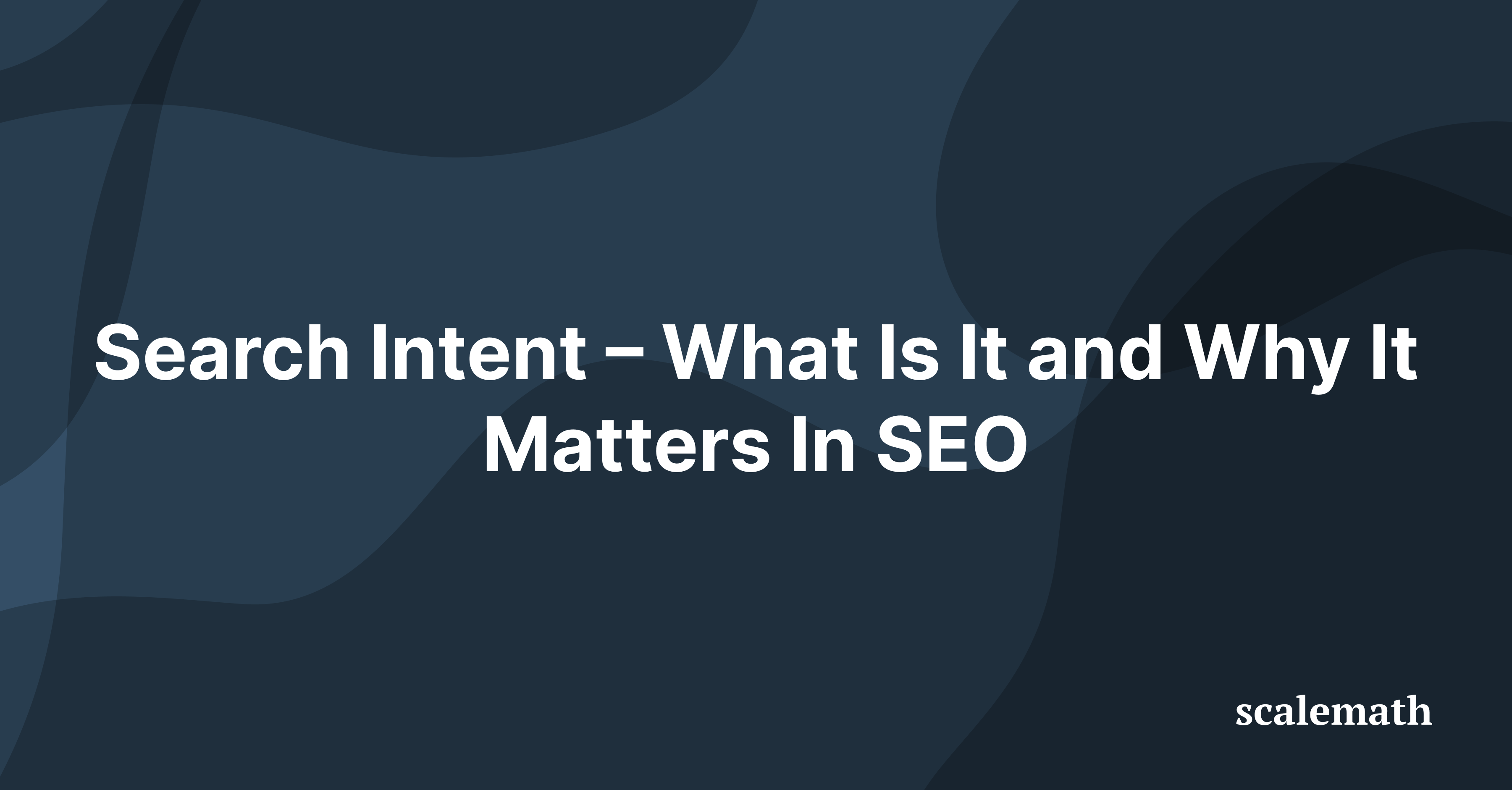Search intent is one of the most important things that you need to keep in mind when writing content. If you don’t address the reader’s search intent, not only are you wasting the reader’s time but your own as well.
Your articles simply aren’t going to rank as well. Google pays close attention to search intent and making sure that you understand exactly what it is, and why it matters, is very important.
What is Search Intent?
Search intent can simply be defined as the reason why someone’s searching for a particular query. It’s about figuring out what motivated the person to search for that specific query, and then addressing it.
You can define it as the main objective of the user when they’re searching for something online. Essentially, they’re looking for answers, and if you can provide them, you’ve addressed their search intent!
Search intent varies from one person to another, so it’s important that you understand what your audience is mainly searching for. For instance, if someone searches for something mundane like “electric bicycles”, they might be looking for information on different brands. Another person might be looking for information on how electric bikes work.
Understanding what goes on in the person’s mind when they write a query is obviously challenging, but it’s not rocket science. In many cases, you’ll be able to infer the user’s search intent from the keyword string itself.
The Four Types of Search Intent
Search intent can be broadly categorized into four different categories, informational, transactional, commercial investigation, and navigational.
Informational
Informational search intent is when a person’s looking to find information about a specific thing. In most cases, the query is written as a question itself, and they’re usually looking for either a straight answer, although in some cases, a more detailed one may be needed.
Here are some examples:
- “Who won the match between Spurs and Arsenal?”
- “What are the best restaurants in Lisbon?”
- “What is search intent?”
- “Best SEO practices”
- “How to write a blog post”
Many of these queries usually start with “how” or “what”. If you are writing informational content, you will want to add words that are known as intent modifiers.
For instance, if you search for “write a blog post”, you’ll probably see results with companies selling their blog post writing services. If you add “how to” before your keyword phrase, you’ve now clarified your intent, and the results will focus more on guides.
Transactional
Transactional search intent is when a person’s looking to buy something. Ideally, when creating content that addresses transactional search intent, it’s important to provide accurate and specific information to your readers.
Your readers are already interested in making a purchase, but they just need to find the best place to order from. If your content addresses their query, you might end up with a conversion!
Here are some examples:
- “Buy cheap hosting”
- “Buy Samsung Galaxy Fold 4”
- “Buy Macbook Air M2”
If you’re selling a product or a service, it’s important that you structure your content and your page towards a common objective: making a sale. For instance, using the product name in the title of the page is a good way to begin.
Commercial Investigation
This is perhaps the most common type of search intent that you’ll come across. A commercial investigation is when a person’s interested in buying something but is looking for more information before they make a decision.
In many cases, they are comparing different solutions or products in order to find the best one. Usually, they are looking for comparisons or reviews. You can use bullet points on your page to present the information better, and even add CTA buttons to encourage them to buy.
Avoid using “salesy” language in your content, instead focus on presenting all relevant information that a person would want to consider before they make a purchase.
Here are some examples of keywords with a commercial intent:
- “The best cheap hosting for blogs”
- “Best headphones under $500”
- “MacBook Pro 2022 review”
- “Cheap hotel in London”
Navigational
This type of search intent simply indicates that the person typing the query is just looking to find a particular website. They already know what site they want to visit or what post they want to read.
Instead of typing the whole URL in Google, they are just typing the search query since it’s so convenient. Here are some examples:
- “ScaleMath SEO content strategy”
- “How to write great technical content ScaleMath”
- “Twitter”
- “Gmail”
In general, people usually use the names of a product or service online when their search intent is navigational.
How to Determine Search Intent
Perhaps the most obvious giveaway is the keyword string itself. Most users generally add different modifiers to really find what they are looking for. There’s another important way to determine the search intent: intuition.
Of course, this is something that you’ll build over time. It doesn’t just come miraculously. When you research a keyword, think about the different situations in why a person might be searching for it.
In many cases, tools like Ahrefs can also give you a better understanding of why people search for specific things. For instance, take a look at the screenshot below of the questions for the keyword phrase “content writing”:

As you can see, a lot of the keyword phrases start from “what is” or “how to”, which indicates informational search intent. Now, if you search for something like “buy MacBook”, here are the results:

This indicates a mix of commercial investigation and transactional intent. If you know what the user is searching for, it becomes considerably easier to create content that satisfies their search intent.
How Search Intent Helps Improve Your Content
If you’re with us so far, you probably have a pretty good idea about just how important search intent is. It’s an important tip that will help you improve the quality of your writing.
When you write while keeping the user’s search intent in mind, you’re essentially giving them a practical solution to their problem. Over time, it’ll help breed familiarity, and users will visit your website knowing that they’ll learn something valuable.
Simply put, your content will cater to an actual problem that people face in the real world and will help you expand your horizons past what you think is right.
Above all, you’ll notice an instant jump in the rankings. Search engines like Google prioritize relevancy above all else, so you’ll notice your content ranking much better than that written by others on a similar topic.
Let’s assume you’re running a digital agency that offers website development services. Most of your clientele involves eCommerce business owners – mainly those who want to launch a store, or those who want to optimize an existing store.
There are a whole bunch of topics that you can cover, such as:
- How to Launch an eCommerce Store in X Steps
- How to Improve Your Conversion Rate: A Brief Guide
- X Common Mistakes That Might Affect Your eCommerce Store’s Growth
- X Tips for Taking eCommerce Product Images
As you can see, all of the topics focus on solving a problem that eCommerce store owners might face. Many of these are common issues, so you probably know that people are searching for similar content.
The more content you write, the more topical authority you’ll gain. Eventually, you’ll build a loyal audience – people who read your blog regularly and derive value from your content. As a marketer and as a writer, search intent helps you bridge the gap between your offering, and what your audience is looking for.
Figuring Out Search Intent Is The First Step to Producing Quality Content
Before you even plan an outline or focus on your next blog post, you should research the keywords carefully. Once you have the keywords down, your next step should be to understand search intent.
This is perhaps the most important, yet one of the most overlooked factors when writing content. It’s what will help you elevate your writing to the next level, and make you an authoritative entity in your niche.

